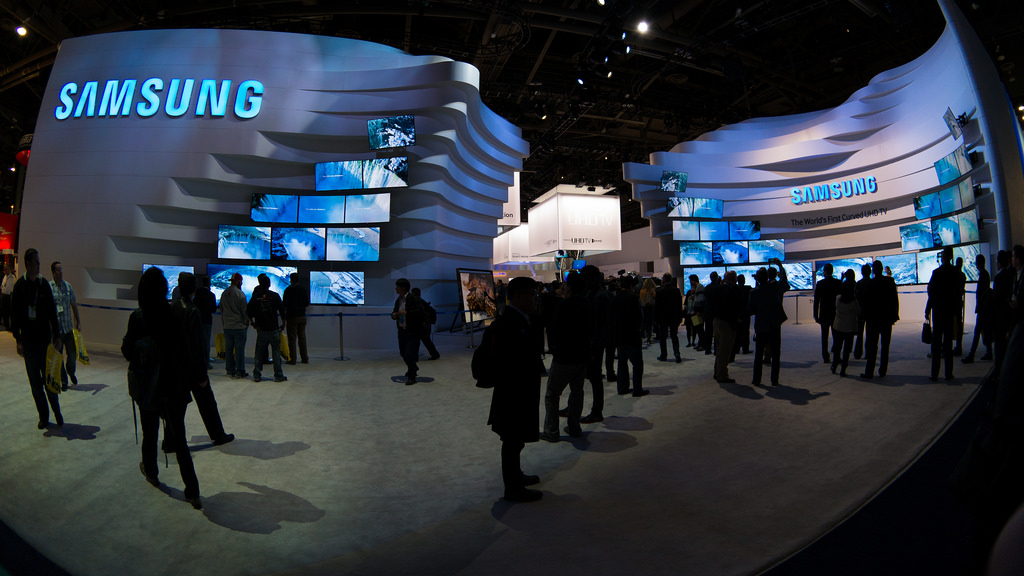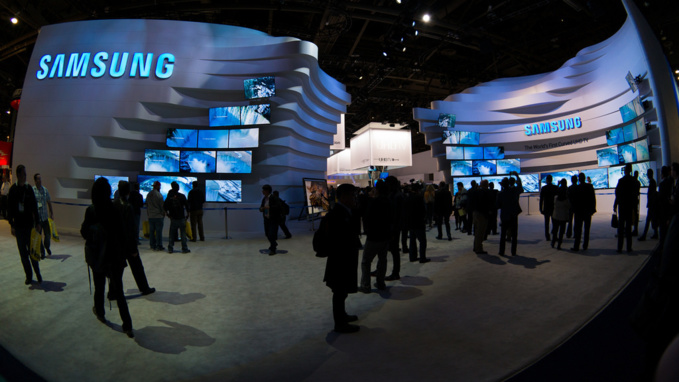The company has lost $ 17 billion of capitalization after official announcement to stop all sales of Galaxy Note 7. Samsung encouraged consumers who have already purchased a smartphone, not to use it, and turn the devices off.
Samsung started selling Galaxy Note 7 in August, and announced recall of 2.5 million of these devices around the world in early September. The reason for this was a manufacturing defect in some devices which resulted in overheating and even fire while charging the battery.
Customers were given new "safe" smartphones in exchange for faulty ones at the end of September. Last week, users in the United States told about several incidents. According to them, their Galaxy Note 7, not connected to a charger, suddenly started to heat up, burn and emit acrid smoke. Taiwan media also reported about one similar case.
Thereafter, the leading US mobile operators have announced suspension of the exchange program, and stopped sales of the device. Any owner of a smartphone from the new party can come a store, where he purchased it, and exchange for Galaxy Note 7 for another equivalent smartphone (iPhone 7 Plus or another Samsung (the Korean company will encourage these customers with a voucher for $ 25). Otherwise, the customers can just get their money back.
11 October, Samsung Electronics’ shares was falling the fastest since 2008 - by 8% to 1,545,000 KRW. The company’s market cap decreased to 217.35 trillion won (about $ 195.6 billion). Last Friday, Samsung Electronics’ share prices rose higher than 1.7 million won for the first time in the history.
Credit Suisse’s analysts estimated that if Samsung terminated all sales of Galaxy Note 7, it could lose $ 17 billion of revenue in 19 million smartphones costing an average of $ 882. Previously, it was assumed that loss of revenue and cost of the product recall would not exceed $ 5 billion. Then, analysts assumed full resumption of Galaxy Note 7 sales in the IV quarter.
June 30, Samsung has cash liquidity reserves of approximately $ 69 billion, which is expected to allow the company to relatively easily absorb the losses. However, the current double failure may negatively affect level of consumer confidence in the company’s products, BBC reported. Some experts believe that the failure ruined reputation of the entire line of Galaxy Note, and soured attitude to other Samsung phones.
"This case is the biggest of all that I have seen in the segment of mobile phones for the time of work." - said Head of the US operator Verizon Communications Inc. Lowell McAdam, who has been working in the industry since 1980s.
source: bbc.com
Samsung started selling Galaxy Note 7 in August, and announced recall of 2.5 million of these devices around the world in early September. The reason for this was a manufacturing defect in some devices which resulted in overheating and even fire while charging the battery.
Customers were given new "safe" smartphones in exchange for faulty ones at the end of September. Last week, users in the United States told about several incidents. According to them, their Galaxy Note 7, not connected to a charger, suddenly started to heat up, burn and emit acrid smoke. Taiwan media also reported about one similar case.
Thereafter, the leading US mobile operators have announced suspension of the exchange program, and stopped sales of the device. Any owner of a smartphone from the new party can come a store, where he purchased it, and exchange for Galaxy Note 7 for another equivalent smartphone (iPhone 7 Plus or another Samsung (the Korean company will encourage these customers with a voucher for $ 25). Otherwise, the customers can just get their money back.
11 October, Samsung Electronics’ shares was falling the fastest since 2008 - by 8% to 1,545,000 KRW. The company’s market cap decreased to 217.35 trillion won (about $ 195.6 billion). Last Friday, Samsung Electronics’ share prices rose higher than 1.7 million won for the first time in the history.
Credit Suisse’s analysts estimated that if Samsung terminated all sales of Galaxy Note 7, it could lose $ 17 billion of revenue in 19 million smartphones costing an average of $ 882. Previously, it was assumed that loss of revenue and cost of the product recall would not exceed $ 5 billion. Then, analysts assumed full resumption of Galaxy Note 7 sales in the IV quarter.
June 30, Samsung has cash liquidity reserves of approximately $ 69 billion, which is expected to allow the company to relatively easily absorb the losses. However, the current double failure may negatively affect level of consumer confidence in the company’s products, BBC reported. Some experts believe that the failure ruined reputation of the entire line of Galaxy Note, and soured attitude to other Samsung phones.
"This case is the biggest of all that I have seen in the segment of mobile phones for the time of work." - said Head of the US operator Verizon Communications Inc. Lowell McAdam, who has been working in the industry since 1980s.
source: bbc.com



















